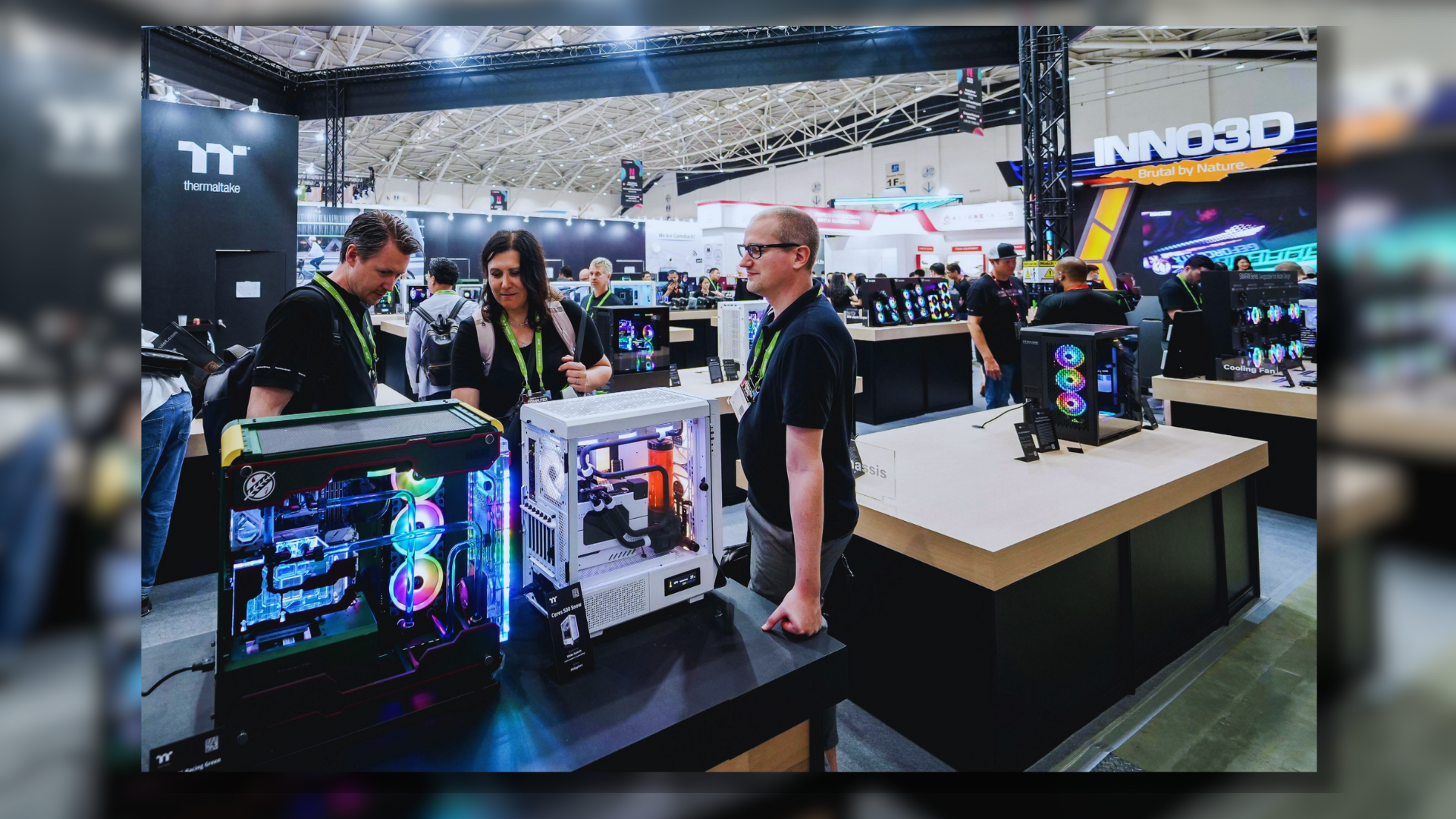This week, Taiwan’s premier tech expo, COMPUTEX, will witness the gathering of the giants in chipmaking and artificial intelligence. The audience is primed to give Nvidia CEO Jensen Huang an enthusiastic reception during his keynote speech on Sunday.
“This is the beginning of our company’s business because we build our wafers here, and build our systems here,” Huang told reporters last week.
ARM-based Macs initially granted Apple a competitive edge in the ongoing Mac vs PC debate. Nonetheless, the debut of Copilot+ laptops featuring Snapdragon X series processors signifies a revitalization of PCs, now posing a formidable challenge even within the Windows environment. The forthcoming Computex 2024 is expected to emphasize this transition.
A Star-Studded Event
The 2024 edition of Computex has garnered significant attention due to the involvement of not only Huang but also the top executives from some of Nvidia’s primary competitors in AI hardware, such as AMD, Qualcomm, and Intel.
Lisa Su of AMD and Qualcomm CEO Cristiano Amon are also slated to deliver keynote addresses at Computex.
Su is anticipated to detail AMD’s strategies for competing in cutting-edge AI, while Amon will “showcase the AI-accelerated experiences users can expect from their next-generation PCs”, according to the organizers.
Intel CEO Pat Gelsinger and Arm’s head, Rene Haas, are also slated to address the event. Tech companies are making significant investments in AI, and Taiwanese manufacturers play a crucial role in their strategies. Taiwan is responsible for manufacturing the majority of the world’s most advanced semiconductors, including those essential for powerful AI applications and research.
Suppliers like Foxconn, traditionally known for contract electronics manufacturing for companies like Apple, have also shifted focus in recent years to produce AI hardware. Foxconn CEO Young Liu informed shareholders on Friday that the company’s global market share for AI servers is projected to reach 40 percent this year.
Nevertheless, Taiwan’s central position in the semiconductor supply chain, which fuels the modern economy, has become a source of concern in global capitals and corporate boardrooms. Taiwan governs itself, but China asserts its claim over the island and has not ruled out the possibility of using force to assert control.
Microsoft’s New Introduction In Market
Microsoft’s introduction of Copilot+ PCs, equipped with Snapdragon X Elite/Plus CPUs and operating on Windows 11 with on-device generative AI-enabled capabilities like recall, represents a noteworthy advancement. As Intel and AMD-powered Copilot+ PCs loom on the horizon, Microsoft’s collaboration with Qualcomm highlights a departure from x86 dominance, evening the playing field for ARM in the Windows environment.
While ARM-powered Windows PCs have been witnessed previously, the current upsurge involves prominent OEMs including Acer, Asus, Dell, HP, Lenovo, and Samsung, in addition to Microsoft. All of them are now offering Copilot+ PCs featuring Snapdragon X Elite or Snapdragon X Plus processors. Although these PCs currently exclusively utilize Qualcomm chips, that is expected to change in the near future.
Microsoft claims that the new Copilot+ branded Surface Laptop and Surface Pro have the potential to outperform a 15-inch M3 MacBook Air by as much as 58 percent on the multi-core CPU benchmark, while also providing 20 percent more battery life. However, these figures are preliminary, and the actual real-world performance of these ARM-based PCs is yet to be determined. To reach a level of maturity comparable to Apple Silicon, it is imperative for more developers to introduce their apps natively on ARM—a trend that Microsoft asserts is steadily gaining momentum.
About Computex
COMPUTEX Taipei, also known as the Taipei International Information Technology Show, is an annual computer expo held in Taipei, Taiwan. Since the early 2000s, it has emerged as one of the largest and most influential trade shows in the global computer and technology industry.
COMPUTEX is co-organized by the Taiwan External Trade Development Council (TAITRA), a government-funded organization, and the Taipei Computer Association (TCA), a private-sector entity. The inaugural expo, originally known as the Taipei Computer Show, took place in 1981.
Initially serving as a platform for small and medium-sized businesses in Taiwan’s burgeoning computer industry to showcase their products, the event underwent a name change to COMPUTEX during its fourth edition, proposed by Stan Shih, a former head of the TCA.
With the rapid growth of Taiwan’s information technology sector in the early 1990s and the utilization of the Foreign Trade Council Display Hall in Taipei Songshan Airport during the eighth and ninth expos, COMPUTEX evolved into a vital global showcase for the IT industry.
On November 28, 2018, it officially became the world’s largest computer expo, attracting major manufacturers such as Intel, AMD, and NVIDIA, as well as renowned Taiwanese brands like Acer and ASUS.
The convergence of tech giants at Computex 2024 marks a pivotal moment in the industry’s trajectory, with Nvidia, AMD, Qualcomm, Intel, and other leaders unveiling their strategies to advance AI and PC technology. Amidst this innovation, Microsoft’s introduction of Copilot+ PCs signals a paradigm shift, challenging x86 dominance and heralding a new era for ARM in the Windows ecosystem. As Taiwan navigates its crucial role in semiconductor production amidst geopolitical tensions, the global tech landscape stands poised for transformative change.




